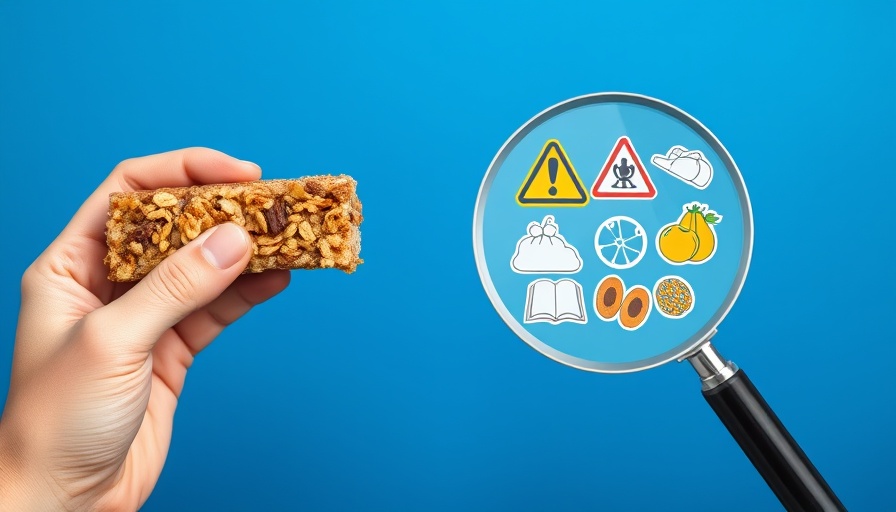
Understanding Ultra-Processed Foods: A Modern Dilemma
In today's fast-paced world, especially for digital nomads, maintaining a healthy diet on the move often feels overwhelming. Many travelers strive to eat healthier but are met with the daunting presence of ultra-processed foods (UPFs) in every corner of the grocery store. These items, often colorful and appealing, mask their potential health risks behind their attractive packaging. The average American consumes approximately 57% UPFs, a figure that rises alarmingly for children and teens—reaching nearly two-thirds of their total food intake.
What Makes Food Ultra-Processed?
The distinction between processed and ultra-processed foods often brings confusion. While terms like 'processed' might typically include items like frozen fruits or packaged nuts, ultra-processed foods are characterized by a much different, deeper level of processing. Based on the Nova classification system by Dr. Carlos Monteiro, UPFs mainly consist of substances extracted from whole foods or produced artificially, incorporated to enhance flavor, shelf life, or appearance. Examples include sugary snacks, energy drinks, and instant meals packed with unhealthy fats, refined sugars, and salt.
Health Risks Associated With UPFs
The health implications connected to UPFs occupy significant research attention. Persistent consumption has been linked to serious health conditions including heart disease, type 2 diabetes, various cancers, cognitive decline, and even mental health disorders like depression and anxiety. For health-conscious digital nomads, understanding these risks is imperative as they navigate localized grocery aisles that seemingly offer little in healthy options.
Making Healthier Choices While Traveling
Navigating a grocery store while trying to minimize UPF consumption can indeed be a challenge. One helpful strategy is focusing on a whole-food philosophy: aim for ingredients that are whole, or minimally processed. Whenever possible, select foods with fewer ingredients, which typically indicates less processing. Engaging with local markets can provide fresher, less processed options as well, giving you a taste of the local culture while adhering to better health practices.
Finding Common Ground on Ultra-Processed Foods
Interestingly, recent research suggests that not all UPFs are equally harmful. As scientists delve deeper, they examine what specific ingredients or processing methods are most detrimental to our health. This nuanced understanding allows digital nomads to approach certain easy-prep foods more critically, identifying those that might better fit into a balanced diet. Efforts continue toward establishing clearer definitions of UPFs, which could further aid consumers in making informed choices.
Creating Your Own Solutions
As a digital nomad, your lifestyle gives you the flexibility to curate your diet. Preparing your own healthy meals in temporary kitchens can drastically reduce reliance on UPFs. Simple, quick meals can include overnight oats, fresh salads, or protein-packed smoothies, all of which commonly use basic, whole-food ingredients. Asking yourself what goes into your meals can directly impact your health, keeping you energized and ready for your adventures.
Take Action But Do Not Stress
While the evidence surrounding UPFs is compelling, it is equally important not to be overwhelmed. Healthier choices are often about balance—allowing yourself some indulgence while primarily focusing on nutrient-dense foods. If you aim for moderation in your traveling diet, you can enjoy your culinary adventures without sacrificing your health.
For more insights on creating nutritious meals while traveling, consider joining groups of like-minded individuals who prioritize health and wellness, sharing tips and recipes that fit your lifestyle.
 Add Row
Add Row  Add
Add 




Write A Comment